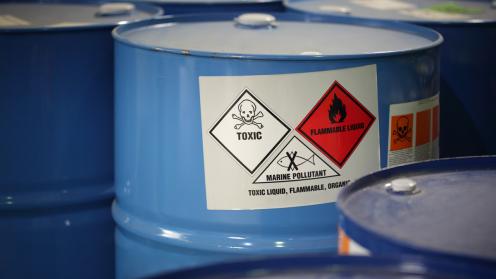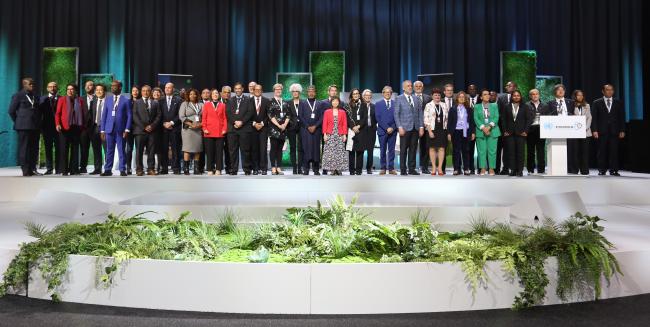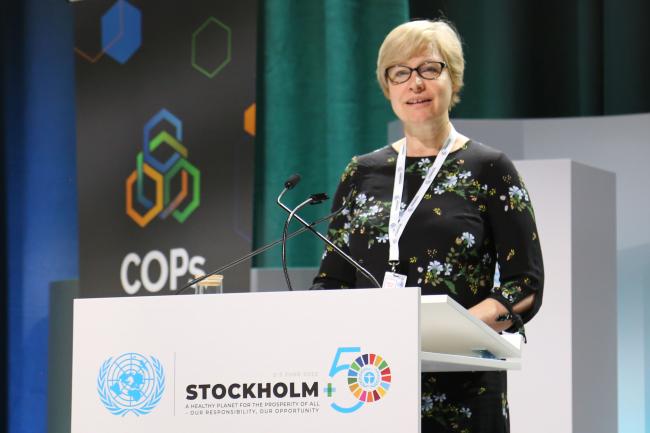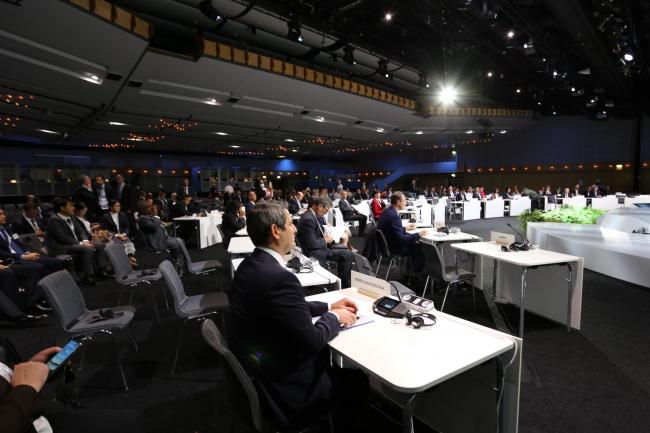The day before the Stockholm+50 Conference gets underway, 82 ministers met to focus their attention on chemicals and waste issues. The event was an opportunity for ministers to reflect on the connections among the triple planetary crises of climate change, nature, and pollution. Occurring just days before the Basel, Rotterdam, and Stockholm (BRS) Conventions’ TripleCOP, ministers provided political momentum and support for the negotiations to come under the three Conventions.
The event also proved to be a chance for ministers to anticipate and explore the growing density of global efforts to manage chemicals and wastes. In addition to the BRS Conventions, many noted the new negotiations for a legally-binding instrument for plastic pollution, forthcoming talks to establish a science-policy interface for chemicals and wastes, and efforts to finalize the Strategic Approach to sound management of chemicals and waste beyond 2020.
To set the stage, Ligia Noronha, UN Assistant Secretary-General, outlined the scale of the challenge, including the 50-fold increase in the production of chemicals since 1950, and expected tripling again by 2050. Warning we are “way off track” to achieve the Sustainable Development Goals, Maria Helena Semedo, Deputy Director-General, Food and Agriculture Organization, reported that 65% of agricultural land is at risk of pesticide pollution.
However, both speakers, joined by Annika Strandhäll, Minister for Climate and the Environment, Sweden, identified opportunities for a healthier planet and people, including the important contributions the BRS Conventions make to a “non-toxic” circular economy, where it is safe to re-use and recycle products because they are free from harmful chemicals.
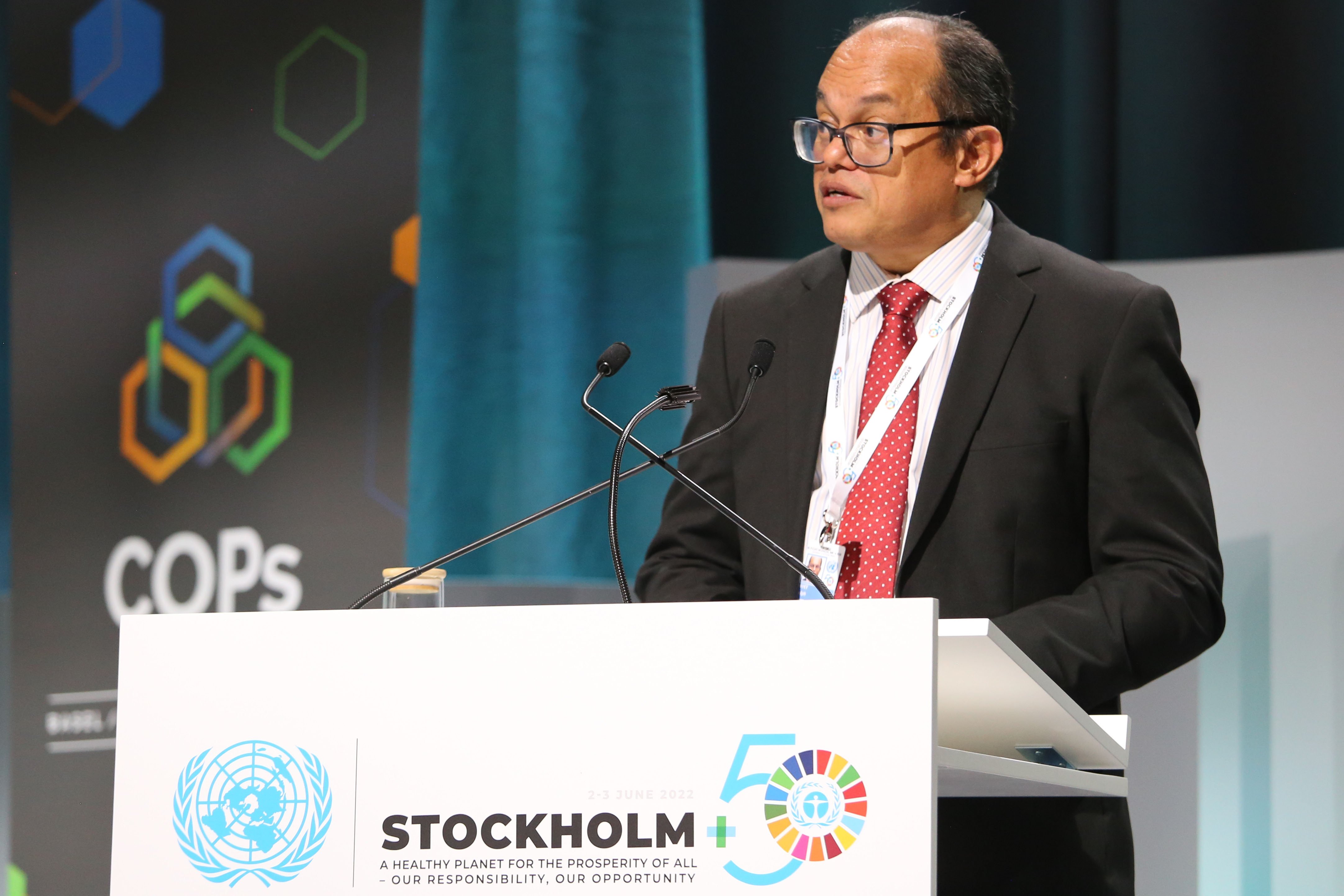
Triple Planetary Crises
Ministers discussed the connections between the climate, nature, and pollution crises. Several noted that the chemical sector and chemical use are drivers of greenhouse gas emissions and biodiversity decline. Waste, and many singled out plastic wastes, was also noted for the harmful effects on wildlife and the environment, particularly in the ocean. Some noted feedback loops among these crises, such as using more chemicals as the productivity of soils declines.
Some ministers called for further collaboration between the climate, biodiversity, and chemicals and waste treaties. Others noted that, locally, the synergies are easier to see and manage if governments can break down silos.
Lifecycle Approach
There was strong support for managing chemicals and wastes throughout their lifecycle as a way to encourage a circular economy. This would end the current, linear patterns of production and consumption. Ministers relayed their challenges managing particular products, from plastics to lead-acid batteries, noting the lack of recycling capacities for hazardous wastes.
Extended producer responsibility was raised often in several contexts. Ministers noted their domestic efforts to make producers responsible for the waste their products create. Yet some extended the idea globally, noting that those least responsible for the problem are bearing the brunt of chemical and waste pollution. They called for countries and, importantly, companies to take responsibility for their fair share of the problem.
Means of Implementation
The need to support developing countries in enacting the complex challenges posed by the sound management of chemicals and wastes was clearly understood by Ministers. Some were worried that it seems parties will miss the Stockholm Convention’s target of phasing out the use of polychlorinated biphenyls (PCB) in equipment by 2025 and ensuring elimination by 2028. Several countries noted the growing problem of medical waste in the wake of the COVID-19 pandemic.
While many welcomed the increased allocation of funding from the Global Environment Facility (GEF) to chemicals and waste issues, they also noted the estimated USD 5 billion required to assist parties to ensure the sound management of chemicals and waste. There were calls for innovative financing, including from the private sector.
The report of the meeting and key messages will be made available to parties as they begin their work at the TripleCOP beginning on 6 June.
To receive free coverage of global environmental events delivered to your inbox, subscribe to the ENB Update newsletter.
All ENB photos are free to use with attribution. For photos of the Basel, Rotterdam, Stockholm COPs, please use: Photo by IISD/ENB | Angeles Estrada Vigil.
Ministerial interactive discussion: Pollution

Zakia Khattabi, Minister of the Climate, the Environment, Sustainable Development and Green Deal, Belgium

Vaughn Peterson Miller, Minister of the Environment and Natural Resources, Bahamas, and Yasmine Fouad, Minister of Environment, Egypt
Ministerial interactive discussion: Lifecycle
Closing Ceremony

Katrin Schneeberger, State Secretary, Director of the Swiss Federal Office for the Environment FOEN, Federal Department of the Environment, Transport, Energy and Communications
